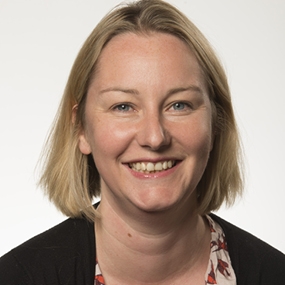- Bulletin: Autumn 2024
- Research
Old problem, new solutions: tackling timeliness in emergency surgery
The Royal College of Anaesthetists is collaborating with The Healthcare Improvement Studies (THIS) Institute at the University of Cambridge in a new project that aims to find ways to improve the time it takes for patients to have their surgery.

Improvement Lead, National Emergency Laparotomy Audit
THIS Institute/RCoA Learning System CORE Fellow
Why are we doing this project?
Timely diagnosis and treatment for emergency bowel surgery has been a key recommendation of the RCoA, NICE, Royal College of Surgeons and NELA for many years. But, though many aspects of care have improved over the years, the time taken for patients to get to the emergency operating theatre remains a stubborn problem. When the recommended standards are not met – as is the case in many areas – patients are exposed to avoidable risks of morbidity and mortality.
Diagnostic or treatment delays can happen for many reasons – problems with making a quick, correct diagnosis in an overcrowded emergency department; accessing expert opinions from surgeons and anaesthetists; requesting and reporting scans quickly and getting space in the busy operating theatres; to name just a few. What’s now clear is that simply stating that ‘things must improve’ is not enough to make change happen.
What does the project involve, and why is it different?
The project is being designed to support three critical elements of a learning health system:
- characterising and understanding problems from multiple perspectives, for example, understanding why and when clinicians do or do not follow guidelines.
- developing and optimising candidate solutions that could help to reduce delays to surgery, where ideas are sourced from a variety of places and by learning from what’s already working well.
- evaluation at scale using routinely collected NELA data and evaluation in pilot hospitals to test the solutions and establish what works and what doesn’t work, and why.
A key element of the project will be the creation of an online community. Hosted on the Thiscovery platform, it will welcome diverse groups involved in emergency perioperative care – ranging from emergency physicians, surgeons, anaesthetists, radiologists, nurses, and managers through to patients and carers and many more. Using their own experience and NELA data, this community will work together to understand problems; to source, develop and prioritise ideas for improvement; and to develop solutions ready for evaluating. They will contribute to discussion forums, vote and comment on improvement suggestions, and develop shared understanding of this complex pathway. This exciting and innovative project will be studied to generate more generalisable lessons for improving healthcare beyond the emergency surgical pathway.
Find out more about the project and participate in the online community.
Would you like to read more articles from this Bulletin?


